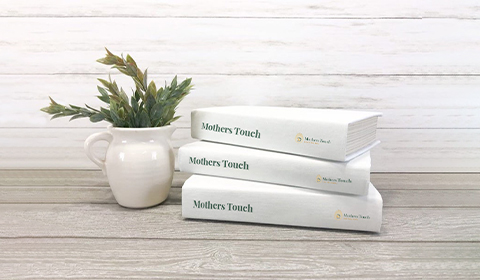Research Findings
Benefits of Traditional Indian Postpartum Practices makes babies healthier and provides effective recovery of mothers after childbirth.

International Achievements
Mothers Touch Foundation, India based in Mumbai under the leadership of Dr. Rekha Chaudhari has been working to revive and re-establish Indian traditional care during pregnancy, childbirth, and postpartum period in our society. The research studies has been registered with FDA (US Department of Health) run trial registry and ICTRP, World Health Organization. This work has been accepted and appreciated in the international conference held at Oxford University, UK; Harvard University, USA; and John Hopkins University, USA in November 2018.
The program has received quite a lot of attention amongst western experts mainly in the USA and the UK. Dr. Rekha Chaudhari aspires to focus primarily on the Indian scenario to develop industrial and employment possibilities for women and reinforce the practice of traditional mother and child care rituals.
Read MoreRead Less
Dr. Rekha Chaudhari not only represented India on the global platform but became the first author to share the research evidence of Indian post-natal care with the world. Her initiative not only had a great impact on mother and child welfare but has opened an avenue for her vision to:
- Develop this industry to employ rural Indian women to make them self-sufficient
- Reduce poverty by creating jobs for the most vulnerable sections of society
- Create a large number of sustainable jobs at decent pay by meeting the demand and supply ratio in case of infant massage



The Mother’s Physical Symptoms
The first obvious symptom of pregnancy for most women is missing a period. This is usually accompanied by increased breast fullness and tenderness, as the usual pre-menstrual levels of discomfort persist and increase. Many women (about 50%) experience ‘morning sickness’ – nausea and vomiting, which can actually occur at any time of the day.
This usually starts about 2 weeks after the missed period and lasts up to the third month. It seems to be caused by the higher levels of sex hormones produced and the body trying to adjust to these changes within the first 12 weeks. Women often develop strong aversions to certain smells and flavors beginning around this time.
This sensitivity to aromas must be considered during treatments. Feelings of tiredness and fatigue are common, although there will be few visible signs of pregnancy to justify this tiredness to others.
Other symptoms of early pregnancy are dizziness and fainting, possibly caused by fluctuations in the blood pressure and sugar levels and frequent urination due to the over-activity of the kidneys. Skin and hair may become oilier as metabolism increases, and some women find they develop blemishes or even acne-like lesions.
Read MoreRead Less
Using different diffuser oils with a suitable fragrance like lavender, jojoba, rose will also help in elevating the mood swings and create a better feel-good effect.
During the later stages of pregnancy, the uterus rises to the base of the sternum and occupies much of the pelvis and abdomen.
Many women experience heartburn and may feel better eating small meals frequently, avoiding rich or spicy food. Constipation and hemorrhoids are other common problems as high progesterone levels slow down peristalsis. However, eating food rich in fibre can help avoid such problems. Further, the pressure of the baby on the bladder may cause frequent urination.
As weight is gained and more fluid is retained in the body, edema in the ankles and legs is likely and varicose veins or dilated capillaries often appear. Lower backache may tend to become noticeable if it hasn’t in earlier weeks. Most women are slower in their actions, feel warmer, and become tired and breathless easily. Blood pressure levels may also rise.
The Mother’s Emotions
For most women, the knowledge that they are pregnant is joyful and exciting and something they may have long hoped for. However, there may be anxieties about how their lives will change and the new responsibilities of becoming a mother – this is especially true for first-time mothers.
Women may experience dramatic mood swings between these two states. In subsequent pregnancies, there may be concerns about the financial implications of having another baby and how the existing children will accept their new brother or sister.
Most women will become very aware of their own health at this time, giving up alcohol and smoking to avoid harming their baby.
Read MoreRead Less
Eating organic food, exercising appropriately, and relaxing one’s mind through meditation and visualization are also important considerations for some. Using of right Aroma oils around your room would also be beneficial.
While some women remain active right up to the end of their pregnancy, many women feel the need to gradually decrease their activity as the date of childbirth approaches. Physical changes may lead to increased discomfort, making vigorous activity difficult.
Sleeplessness is a common problem in later pregnancy due to physical discomfort, and this can be accompanied by increased anxiety about the health of the baby or the impending birth. Many women feel impatient and can’t wait for the pregnancy to be over.
Sometimes a strong “nesting instinct” creates the need for mothers to clean and tidy up everything around in preparation for the birth.
The Developing Baby
Towards the end of the third trimester, the baby will grow and develop to an average weight of 3.5kg and grow up to 50cm in length by the end of the pregnancy. All the organs will mature although the lungs are the last to do so and babies born prematurely may still need help with breathing.
The head engages in the pelvis at about week 36 and birth can occur at any time after this. This also makes the mother more comfortable, reducing pressure from the upper abdominal organs such as the stomach, making breathing easier.

